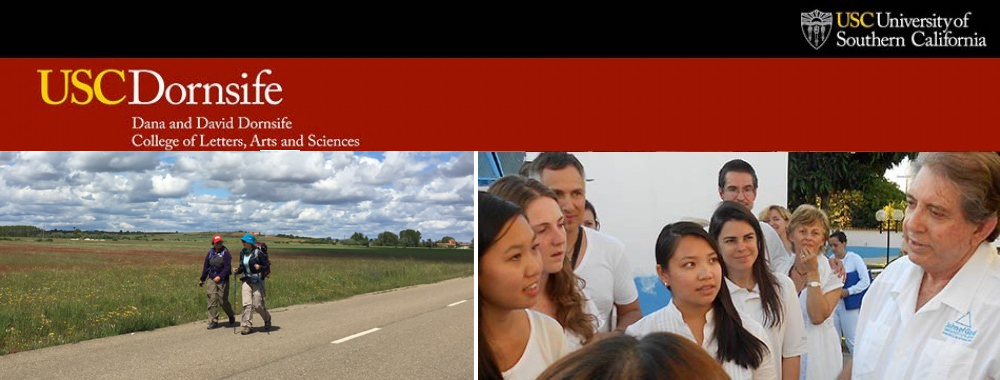Our first day in Madrid we were the stereotypical tourists taking pictures of everything that caught our attention. One thing that nobody could miss that day was a large demonstration of people marching down the street. Signs read “justicia” or “democracia” but I couldn’t tell who these passionate calls were aimed toward. I then read the banner that said “Venezuela, the world hears you.”
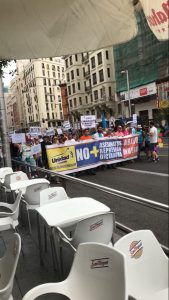

Madrid protest
This protest was a stand against the oppressive Venezuelan dictator Hugo Chavez, a name I recognized but knew little about. Like all the other tourists around me, I took a video and moved on. It wasn’t until I began the Camino that those words and cries for help would ring so loudly.
Our second day on the Camino, I was a bit disappointed that I hadn’t met many pilgrims who had a harrowing story like the ones I had read about or seen in movies, but I actually heard my first “pilgrim story” at our albergue. The moment I stepped into Albergue San Miguel, I felt welcomed. We were greeted with a smile worn by the man we all would get to know. 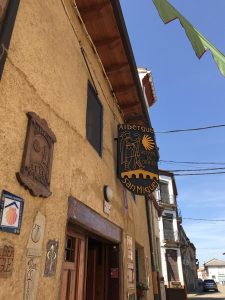 Arturo, the owner of the quaint and colorful albergue, offered us a tour, gave us canvases to paint on, and even greeted me in Korean. He epitomizes the community spirit of the Camino and his remarkable story is an example of why I wanted to participate in this trip.
Arturo, the owner of the quaint and colorful albergue, offered us a tour, gave us canvases to paint on, and even greeted me in Korean. He epitomizes the community spirit of the Camino and his remarkable story is an example of why I wanted to participate in this trip.
 Arturo, the owner of the quaint and colorful albergue, offered us a tour, gave us canvases to paint on, and even greeted me in Korean. He epitomizes the community spirit of the Camino and his remarkable story is an example of why I wanted to participate in this trip.
Arturo, the owner of the quaint and colorful albergue, offered us a tour, gave us canvases to paint on, and even greeted me in Korean. He epitomizes the community spirit of the Camino and his remarkable story is an example of why I wanted to participate in this trip.Later that day when I went to look at the souvenirs in the display case, he patiently waited while we tried on different bracelets, and I noticed a picture of him and his family in front of the cathedral in Santiago. He openly answered my questions and explained how he got to where he is today. He participated in the Camino twice and the second time he and his wife decided to stay and buy an albergue that was for sale two years ago. “It was a miracle,” he said. I agreed because I admired the idea of rebuilding a life somewhere new, but Arturo really had no choice since he had to flee the troubling conditions in his native country of Venezuela. He was able to stay in Spain because his wife is a member of the European Union.
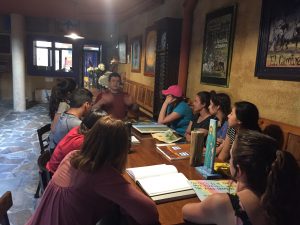

Arturo talks to the students about the repression in Venezuela.
Later that night, Arturo was kind enough to tell our group his story and he gave us some background about the political climate. In Venezuela, a dictator has driven the country into the ground and people struggle to get by. His mother and son still live there and he offers as much help as he can by sending basic goods like toilet paper every few months. He said he is so lucky and I was in awe of how his life revolves around providing for his family and giving to other pilgrims.
As we left the albergue, Arturo was there to send us off with that same smile and warm demeanor. I told him I would pray for his family in Venezuela and thanked him for his hospitality. I left behind my painting, an attempted recreation of the Albergue San Miguel, Arturo’s own miracle and my favorite memory from this trip.
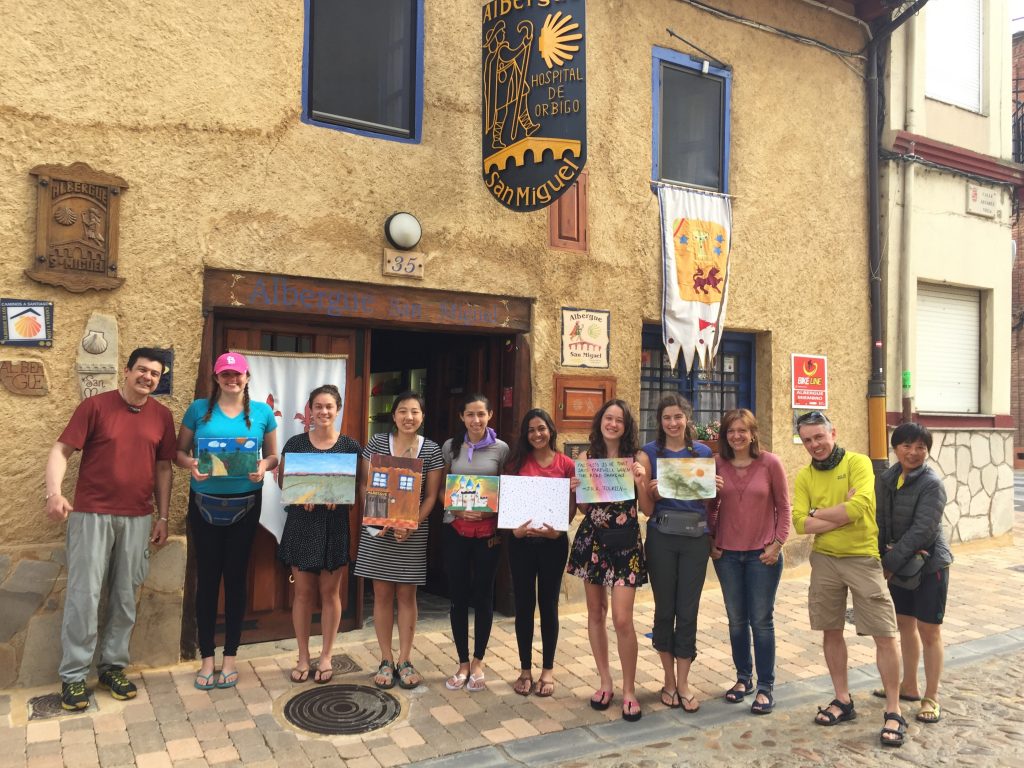

Arturo is far left and the author Emily is fourth from left.
